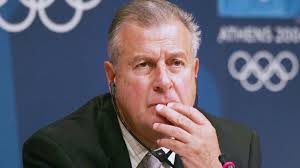By Andrew Warshaw
August 25 – Comments made to a weekend newspaper in Switzerland by former Olympics guru Francois Carrard and head of FIFA’s newly formed Reform Committee have questioned the role and motivation of the US, but other statements will not have endeared him to the growing US soccer community.
His belief that FIFA president Sepp Blatter was being unfairly treated, picked up by this website and a raft of other media organisations, were not the only significant remarks he made. They were far more wide-ranging comments that have prompted some to suggest his independence as head of the Reform Task Force is already being compromised.
With the US justice department’s investigation into football fraud still very much in full flow (even if details have dried up in recent weeks) Carrard questioned why Americans should even be involved in FIFA at all when gridiron football, baseball and basketball are so much more popular than soccer could not have gone down too well.
“Since soccer is not a true American sport, I struggle to understand – and I’m not the only one – why the Justice Department was so excited to the point that the Attorney-General should hold a news conference in New York,” was the reported English translation of his Le Dimanche Matin interview. “Crimes of this type occur every day in the United States.”
Carrard went on to express the opinion that soccer in the United States “is an ethnic sport for school girls”. The World Cup-winning women’s team might well take exception to that, as might the US men’s team who reached the last 16 of the World Cup in Brazil.
The interview did, however, reveal the former International Olympic Committee director general’s modus operandi when it comes to how he will tackle the task ahead. He made it clear he was not happy that his panel representatives were presented to him as a fait accompli – all of them from FIFA’s six all-powerful confederations.
“When I was offered the position, the members had (already) been appointed,” he said. “I did not have a say. So I asked to nominate a fully independent advisory board of my own of five members, no more, because we have to work fast.
“I will choose them . . . they will be personalities of experience, wisdom, international stature, who have had to cope with crises but who do not necessarily come from the sport.”
Carrard also disclosed the Reform body will not, as originally released, include representatives of the major World Cup sponsors. However two members of his own board would be chosen after discussions with FIFA’s commercial affiliates.
Term and age limits, as well as a restructuring of the exco, are expected to feature among Carrard’s proposals to the congress which will elect a new president next February 26. First he will gather together his team of experts in Bern before addressing the executive committee with an update at the end of September. Like Blatter, Carrard is uncomfortable about how much power FIFA’s six confederations hold on the exco.
“A fundamental element of FIFA’s problems is the confederations’ anachronistic position. They are not members of FIFA but are decisions-makers within the organisation . . . without responsibility. This is a fundamental cultural and structural problem.”
Contact the writer of this story at moc.l1745072833labto1745072833ofdlr1745072833owedi1745072833sni@w1745072833ahsra1745072833w.wer1745072833dna1745072833

